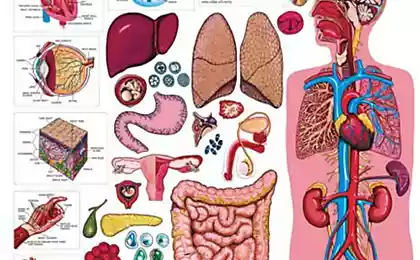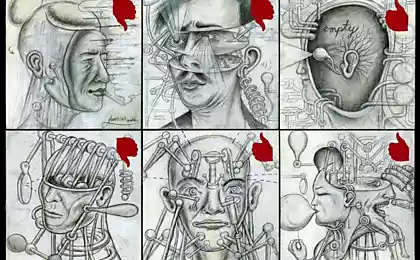152
Diogenes syndrome is a disease that attacks the elderly. This is not an old-fashioned fad...
Diogenes syndrome, or senile poverty syndrome, is common among 5 percent of older adults worldwide. Although sometimes young people suffer from this disease. The disease got its name in honor of the ancient Greek philosopher who decided to abandon all earthly goods and settled in a barrel.

People who suffer from Diogenes syndrome are easily seen in the crowd. Often these are elderly citizens who busily carry or carry a variety of junk on a cart home. They live in the mountains of garbage in extreme poverty, although in fact they can have quite large savings.

They do not touch their long-term collections of junk, they save for a rainy day, appealing to the fact that all this is “still useful” – “almost new” – “can be sold for a lot of money.” Many in vain consider these comrades just eccentrics. It is important to recognize that people are really sick!
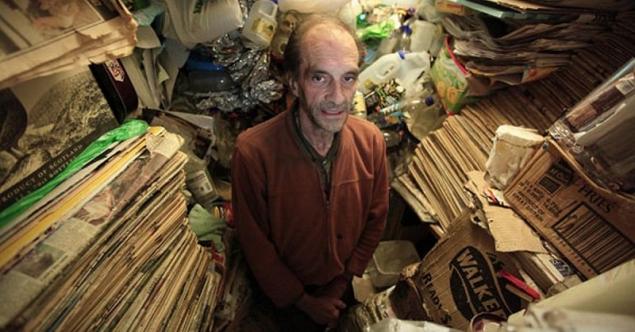
And the roots of the mysterious disease, oddly enough, are in the human brain. Scientists at the University of California came to the conclusion that the passion for collecting is associated with the activity of the frontal cortex of the brain.
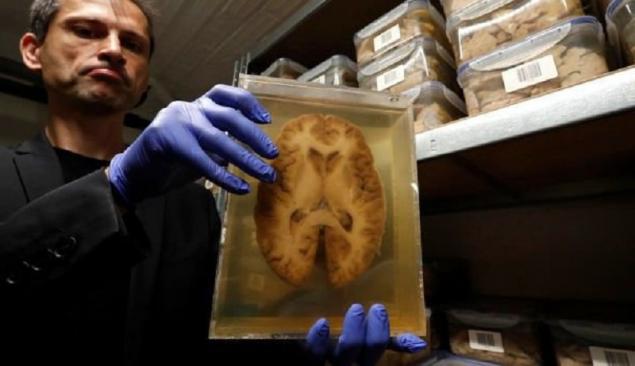
Many of us as children collected stamps, postcards, coins, badges, stickers and much more. Often with age, this little passion faded or remained a hobby for life. But the line when the harmless desire to possess something turns into a disease is still unknown to scientists.

Studies have shown that people who suffer from an uncontrollable desire to pull garbage into the house, there is a weak development of the cortex of the frontal lobes of the brain. In the early stages, Diogenes disease is very difficult to diagnose. Often people find it easier to call it crazy or strange features of character, but not a disease.
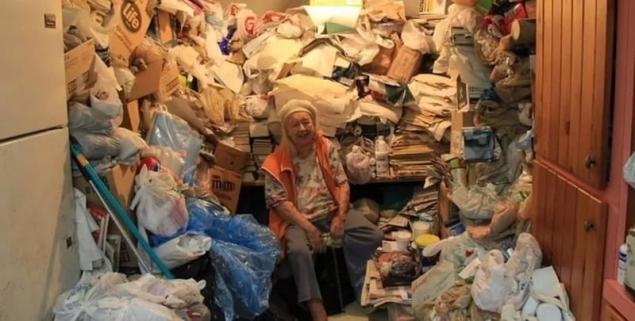
What to do with the friends and relatives of modern Plyushkins? After all, they are almost hostages near mountains of garbage and mud. What can we say about the hordes of insects with rodents, which are so comfortable to reproduce in conditions of total disorder.

The best solution, of course, will be the consultation of an experienced psychiatrist. Doctors in the early stages can prescribe special medications that stabilize the patient's condition. Often, doctors advise relatives to try to negotiate with the collector and direct his energy in a peaceful direction.

For example, offer to collect not everything, but something specific. Or convince a person that you need to clean the house so that his collection can be shown to someone. It would be good to help a relative with cleaning first.
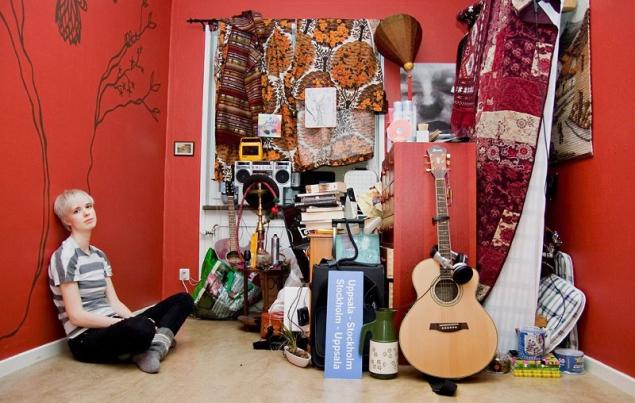
This behavior should not be regarded as a lifestyle. Be sure to share the article with friends, warn them about the danger!

People who suffer from Diogenes syndrome are easily seen in the crowd. Often these are elderly citizens who busily carry or carry a variety of junk on a cart home. They live in the mountains of garbage in extreme poverty, although in fact they can have quite large savings.

They do not touch their long-term collections of junk, they save for a rainy day, appealing to the fact that all this is “still useful” – “almost new” – “can be sold for a lot of money.” Many in vain consider these comrades just eccentrics. It is important to recognize that people are really sick!

And the roots of the mysterious disease, oddly enough, are in the human brain. Scientists at the University of California came to the conclusion that the passion for collecting is associated with the activity of the frontal cortex of the brain.

Many of us as children collected stamps, postcards, coins, badges, stickers and much more. Often with age, this little passion faded or remained a hobby for life. But the line when the harmless desire to possess something turns into a disease is still unknown to scientists.

Studies have shown that people who suffer from an uncontrollable desire to pull garbage into the house, there is a weak development of the cortex of the frontal lobes of the brain. In the early stages, Diogenes disease is very difficult to diagnose. Often people find it easier to call it crazy or strange features of character, but not a disease.

What to do with the friends and relatives of modern Plyushkins? After all, they are almost hostages near mountains of garbage and mud. What can we say about the hordes of insects with rodents, which are so comfortable to reproduce in conditions of total disorder.

The best solution, of course, will be the consultation of an experienced psychiatrist. Doctors in the early stages can prescribe special medications that stabilize the patient's condition. Often, doctors advise relatives to try to negotiate with the collector and direct his energy in a peaceful direction.

For example, offer to collect not everything, but something specific. Or convince a person that you need to clean the house so that his collection can be shown to someone. It would be good to help a relative with cleaning first.

This behavior should not be regarded as a lifestyle. Be sure to share the article with friends, warn them about the danger!




















